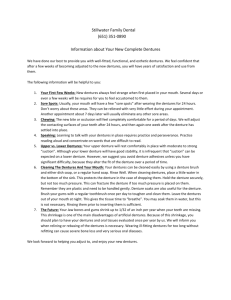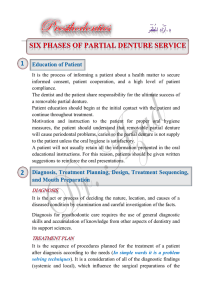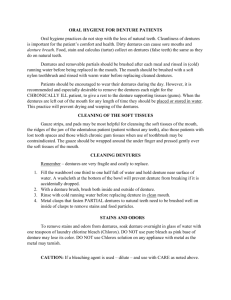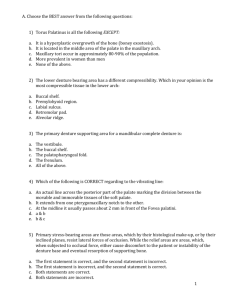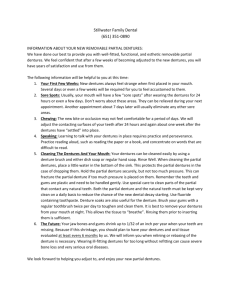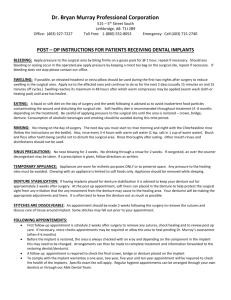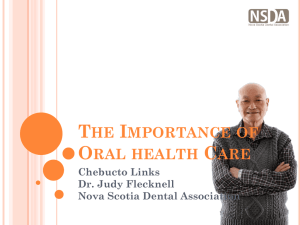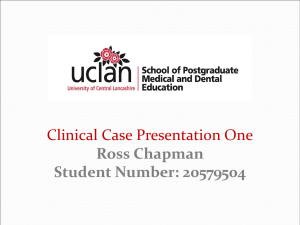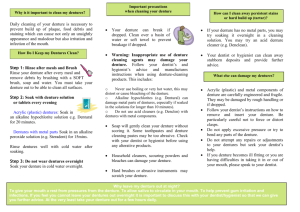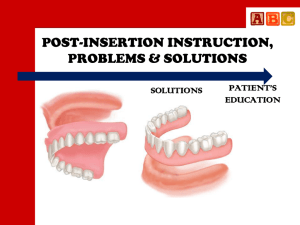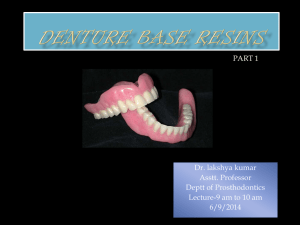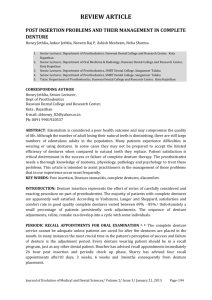Treatment of fungal infections in denture wearers
advertisement
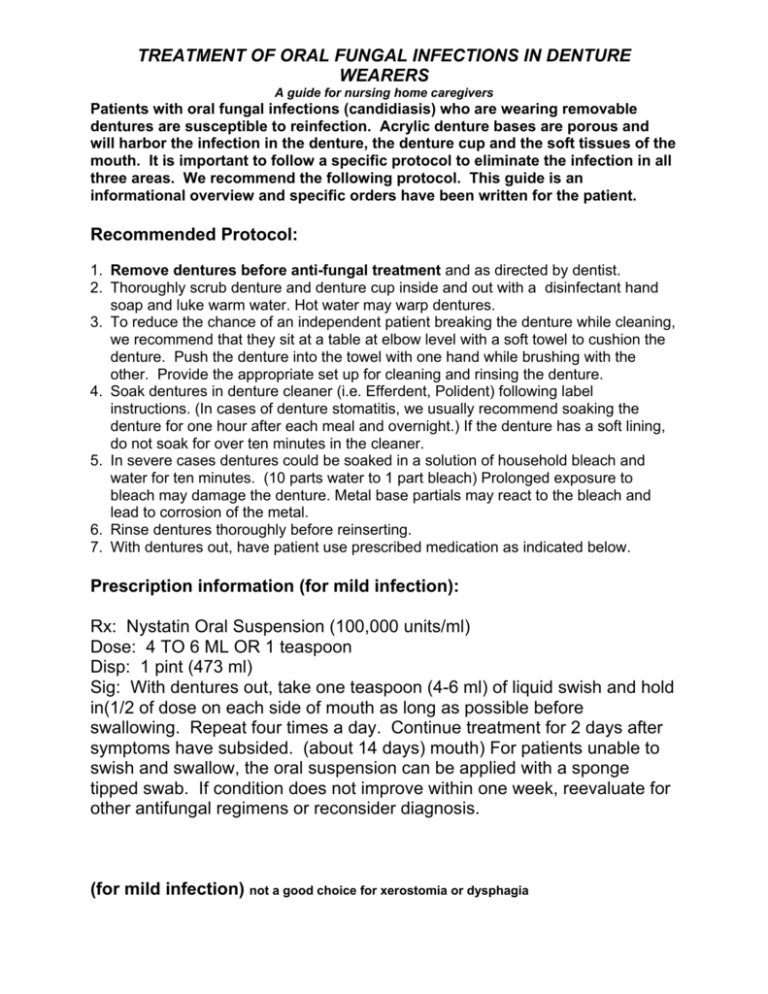
TREATMENT OF ORAL FUNGAL INFECTIONS IN DENTURE WEARERS A guide for nursing home caregivers Patients with oral fungal infections (candidiasis) who are wearing removable dentures are susceptible to reinfection. Acrylic denture bases are porous and will harbor the infection in the denture, the denture cup and the soft tissues of the mouth. It is important to follow a specific protocol to eliminate the infection in all three areas. We recommend the following protocol. This guide is an informational overview and specific orders have been written for the patient. Recommended Protocol: 1. Remove dentures before anti-fungal treatment and as directed by dentist. 2. Thoroughly scrub denture and denture cup inside and out with a disinfectant hand soap and luke warm water. Hot water may warp dentures. 3. To reduce the chance of an independent patient breaking the denture while cleaning, we recommend that they sit at a table at elbow level with a soft towel to cushion the denture. Push the denture into the towel with one hand while brushing with the other. Provide the appropriate set up for cleaning and rinsing the denture. 4. Soak dentures in denture cleaner (i.e. Efferdent, Polident) following label instructions. (In cases of denture stomatitis, we usually recommend soaking the denture for one hour after each meal and overnight.) If the denture has a soft lining, do not soak for over ten minutes in the cleaner. 5. In severe cases dentures could be soaked in a solution of household bleach and water for ten minutes. (10 parts water to 1 part bleach) Prolonged exposure to bleach may damage the denture. Metal base partials may react to the bleach and lead to corrosion of the metal. 6. Rinse dentures thoroughly before reinserting. 7. With dentures out, have patient use prescribed medication as indicated below. Prescription information (for mild infection): Rx: Nystatin Oral Suspension (100,000 units/ml) Dose: 4 TO 6 ML OR 1 teaspoon Disp: 1 pint (473 ml) Sig: With dentures out, take one teaspoon (4-6 ml) of liquid swish and hold in(1/2 of dose on each side of mouth as long as possible before swallowing. Repeat four times a day. Continue treatment for 2 days after symptoms have subsided. (about 14 days) mouth) For patients unable to swish and swallow, the oral suspension can be applied with a sponge tipped swab. If condition does not improve within one week, reevaluate for other antifungal regimens or reconsider diagnosis. (for mild infection) not a good choice for xerostomia or dysphagia TREATMENT OF ORAL FUNGAL INFECTIONS IN DENTURE WEARERS A guide for nursing home caregivers Rx: Mycelex (clotrimazole) Troche for topical oral admin. Dose: 10 mg clotrimazole Disp: 70 tablets Sig: With dentures out, slowly dissolve one table in the mouth every 2-3 hours, while awake, not to exceed 5 tablets per day for 14 days. Tablet must dissolve in mouth; do not chew or swallow whole. Swallow saliva as tablet dissolves. (Severe or refractory infection): Diflucan (fluconazole) Tablets-a broad spectrum anti-fungal 50, 100 and 200 mg Tabs. Cleared by renal excretion. Extremely potent. Recommended dosage for oropharyngeal candidiasis is 200mg on first day, followed by 100 mg once daily. Condition resolves within 2-3 days, but manufacturer recommends to continue treatment for 2 weeks to prevent relapse. 1Usually disp. 9 tabs. Rare cases of anaphylaxis have been reported. Possible liver reactions. Interaction with coumarin, dilantin, cyclosporin and other medications. Angular Chelitis For inflammation extending to the corners of the mouth (angular chelitis) can be due to candida, staph or a combination of both. Consider applying Neosporin (triple antibiotic ointment) 3 times a day alternating with a topical anti-fungal like Monostat Derm 3 times a day for 14 days. Angular chelitis often has a staph component to it that will not respond to the anti-fungal alone. Additional Notes: -Removable Dentures (Complete and Partial) should be labeled with name or id. -The denture cup should be labeled with the patient’s name as well. -Denture cleaning tablets and denture brushes should be available prn. -Dentures and partial should be removed after every meal and patients with natural teeth or implants need to brush away all debris before reinserting the denture. -If loss of the denture is a concern, discuss this concern with the patient and family. -Each facility should have a log of any missing dentures. Track who reported the loss, when it was first noticed, last time the denture was seen, describe the unit lost (upper/lower/full/partial). Have a cross referenced log of any dentures found, with the same information. Dr. Ford Grant, Director Carolinas Mobile Dentistry, Charlotte, NC
